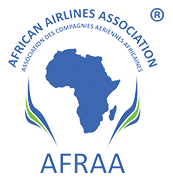Pratt & Whitney: Why industry needs global standards for sustainable fuel use
Geoff Hunt is Pratt & Whitney’s senior vice-president, engineering & technology.
Commercial aviation has a unique opportunity when it comes to sustainable flight, and our industry must use multiple approaches to address the challenge.
We will of course continue to leverage our technical know-how and innovation to build future generations of ever-more efficient and capable aircraft.
Solution exists for aviation to reduce emissions, says Hunt
One immediate opportunity to radically reduce our dependence on fossil fuels is to develop a viable and robust sustainable aviation fuel (SAF) infrastructure and marketplace as a bridge technology, as we design and build the future generation of commercial aircraft, powered by hyper-efficient engines.
At the risk of simplifying matters, industry – with appropriate government support – can develop a viable, affordable path to using SAFs.
Fact: by 2035, 44,000 aircraft are expected to be in service, and the majority of those will still be flying in 2050 and beyond. Airlines cannot re-fleet entirely when the next generation of technology is introduced from 2035.
We need a solution that bridges the technology gap between now and our sustainable future state.
A robust SAF infrastructure and marketplace would take us to 2050 with a new baseline carbon footprint from which the industry will apply our collective knowledge to reduce our footprint even further, through the diligent development and use of new technology and innovation that it has always shown.
Advancements in gas turbine engines have already reduced fuel consumption and emissions, so the near-term flying fleet is performing better. For example, Pratt & Whitney’s geared turbofan technology, which entered service in 2016, delivers 16-20% better fuel efficiency and corresponding carbon dioxide (CO2) emissions reductions. However, bringing future hyper-efficient technology to the market and into airline fleets will take time.
We know how to get there; those of us in industry, and our partners in government, need to get serious about a viable path for SAF development, production and distribution. The latest-generation engine technology today can fly on 100% SAFs under test conditions, though modifications to engine components may be required. This is not a pacing event for the industry.
We need SAFs developed at scale. Today, less than 1% of fuel needs are met by their use. Governments can provide the right mix of incentives and funding to stimulate supply and demand towards an economically competitive level.
TAX CREDITS
In Europe, we are seeing a move towards mandating a minimum level of SAF usage, while in the USA, the industry is calling for “blender’s” tax credits to reduce the price differential versus kerosene. Ultimately, we will need both of these carrots and sticks to lift the growth in SAFs beyond the anaemic progress to date.
There are currently seven SAF production pathways available, and industry will also need to find a balance to avoid competition with food producers for arable land, for instance, by focusing on waste-to-fuel and power-to-liquid solutions.
Transitioning to SAFs provides benefits beyond reducing CO2 emissions. By avoiding the impurities associated with fossil-based fuels, SAFs will also cut sulphur oxide and particulate emissions, which contribute to contrail formation and other climate change impacts.
These incremental benefits, along with those from other advancements in engine efficiency, will have a meaningful environmental impact – clearly an important factor given the scale of the challenge with boosting SAF production capacity.
Although we are also investigating zero emissions technologies like hydrogen- and electric-powered propulsion, these do not compete with the drive to implement SAFs at scale; in fact they are synergistic. The buzz around hydrogen helps build up our capacity for renewable energy sources that plays directly into power-to-liquid SAF production infrastructure.
Pratt & Whitney stands ready to work with regulatory authorities to test and develop global standards for SAFs to be used in engines as “drop-in” blends at or greater than the 50% blend with kerosene allowed today. Ideally, we need to develop standards to allow any and all SAFs to be used interchangeably throughout the world, by any airline on any large commercial aircraft.
The answer to more sustainable aviation is not asking people to travel less. This is unrealistic, and the past year has shown us how important it is to connect people and grow economies through affordable air travel. The answer is in employing smarter, more environmentally friendly technologies to help people and cargo take flight.
Our industry has proven its ability to meet any challenge with practical and pragmatic solutions, and we can, and must, do it again.
Source: Pratt & Whitney
